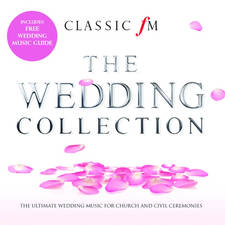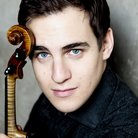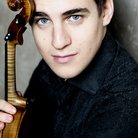Jack Liebeck: Hot Property
He may have played the young Mozart in a film at the age of 10 and been a finalist in the BBC Young Musician of the Year competition at 14, but virtuoso violinist Jack Liebeck was a relatively late starter.
“I didn’t start playing the violin until I was eight, even though I was desperate to do so from much earlier. My parents didn’t think it was going to be a long-lasting thing and thought I’d be better off sticking to the recorder but I banged on and on until they finally got sick of my nagging. I was going to a Saturday music school, and they took me to the person who ran it and said, ‘Please! Find him a violin teacher!’ – and that day I had my first violin lesson with Mateja Marinkovic, with whom I’ve studied ever since. So it was kind of like a fairytale!
Jack studied at the Purcell School and went on to London’s Royal Academy Of Music, from which he graduated in 2003. But he first began commanding national attention in 1994, when he reached the string final of Young Musician. Competition that year was intense, with other string finalists including the violinist Rafal Payne, and the cellists Adrian Brendel and that year’s overall winner, Natalie Clein. “I was a little squirt, and Natalie was beautiful and 17 – but anyway, I was spotted then as someone who could have potential, and it was that which got me started.”
A string of concerto engagements followed, taking Jack across Europe and as far afield as South-East Asia. “I love the travelling – it’s only when I’m running around like a nut that I think, ‘This is what it’s all about.’ I might be knackered all the time, but this is why I did all that practising!”
However, it was a concert closer to home that he considers the most important of his career up to that point – his Royal Festival Hall debut in 1997 performing Mozart’s Violin Concerto No.5 with the London Philharmonic Orchestra.
Likewise, the recital that holds pride of place in Jack’s memory was a similar homecoming – his London recital debut at the Wigmore Hall in May 2002. Why wait so long to play on home ground?
“We were always careful not to push things too hard. It’s the same reason why I’ve only just made my first recording.”
Jack’s disc pairs French music – Saint-Saëns, Chausson and Ysaÿe – with the sonata Prokofiev adapted from his Flute Sonata for the violin of David Oistrakh.
This year Jack’s set to build on these recent successes. March sees his return to the Wigmore for more Prokofiev along with music by Beethoven and Strauss, and a newly-commissioned work from Blue On Blue composer Patrick Hawes.
Later he’s embarking on a series of concerts celebrating the centenary of the Theory of Relativity – as Einstein was also a keen fiddler. And to crown it all, he’ll release his second CD, featuring Dvorˇák’s Concerto, Sonata and Sonatina.
“It’s a mystery to me why the Concerto isn’t more popular – I can’t say why other people don’t play it, but I love it!”
Late starter he may have been, but now’s the time to look out for Liebeck.




